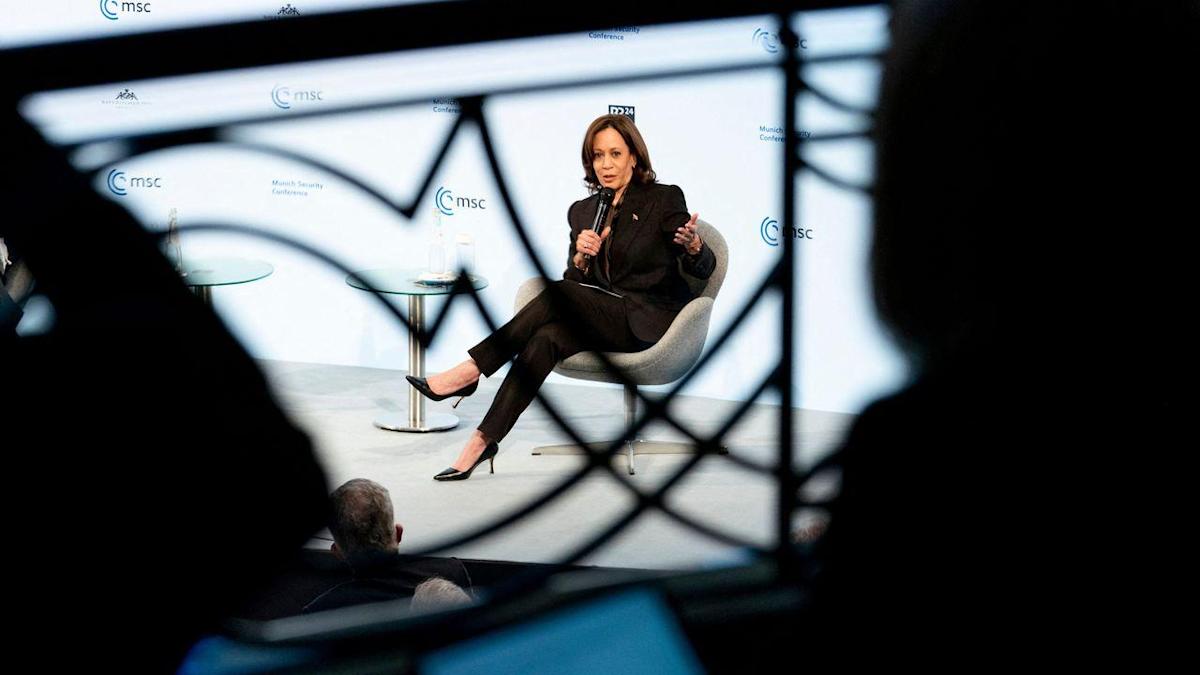
Vice President Kamala Harris met with Israeli Defense Minister Benny Gantz on the sidelines of the Munich Security Conference on Saturday evening local time, U.S. and Israeli officials told Axios.
Why it matters: The meeting took place as the indirect talks between the U.S. and Iran in Vienna reached a critical juncture. The Israeli government is still attempting to influence the U.S. position but also wants to start talking about how to counter Iran in the region if a new deal is reached or if talks fail.
Stay on top of the latest market trends and economic insights with Axios Markets. Subscribe for free
The big picture: Harris is visiting Munich amid the crisis in Ukraine. Though a close ally of the United States, Israel has good relations with both Russia and Ukraine and has stayed relatively neutral regarding the crisis.
The latest: Harris and Gantz met for 30 minutes in Munich and discussed Iran, Ukraine and the Abraham Accords, among other issues, with Gantz arguing that any nuclear deal must include strict monitoring and inspections by the International Atomic Energy Agency and the continuation of the IAEA investigations regarding possible military dimensions of the nuclear program, the Israeli ministry of defense said.
What they are saying: “I expressed my gratitude to U.S. President Biden and the VP for their commitment to preventing a nuclear Iran,” Gantz wrote on Twitter after the meeting.
-
“They reaffirmed the strength of US-Israel relationship and discussed our efforts to address the threat posed by Iran and its proxies,” a White House official said on background in a readout of the meeting.
Flashback: This will be the second meeting between Harris and a senior Israeli official since she assumed office. Her first meeting was with Israeli Foreign Minister Yair Lapid during his visit to Washington last October.
Between the lines: Inside the Israeli government, Gantz is the most pro-deal official. Like many in the Israeli security establishment, Gantz thinks a U.S. return to the 2015 nuclear deal is the least bad option and will serve Israel’s interests more than the current situation when there are no constraints on the Iranian nuclear program.
Editor’s note: This story has been updated with new information following the meeting.
Like this article? Get more from Axios and subscribe to Axios Markets for free.




